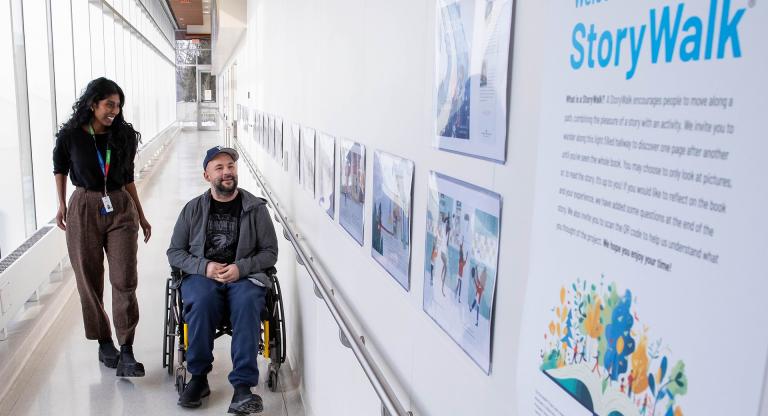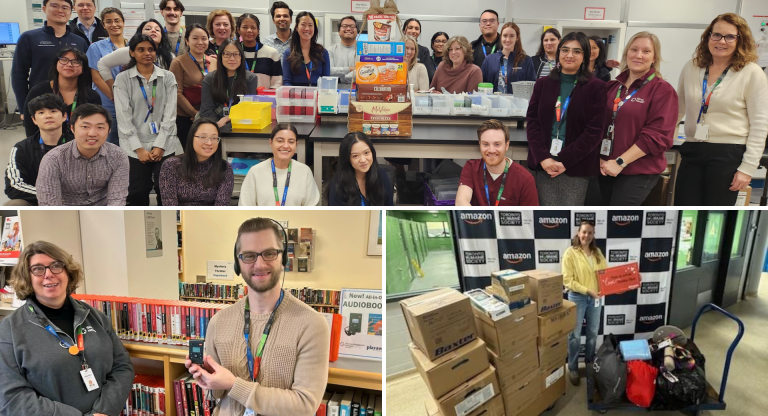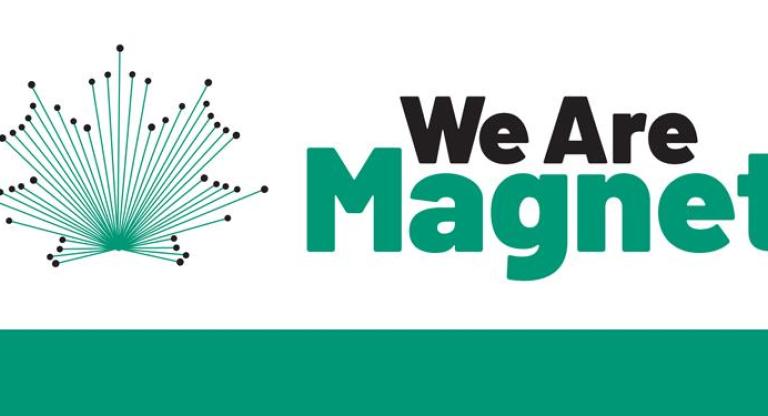Managing pain and leaving opioids behind: Lindsay’s story

In May 2014, Lindsay Bridge was admitted to Mount Sinai Hospital.
Lindsay had been diagnosed as a teen with Antiphospholipid Antibody Syndrome, an autoimmune disorder where blood clots can form in the body’s arteries and veins. As an adult, even though the disorder had not been active in years, her symptoms returned fast and hard while Lindsay was pregnant, causing a number of complications, including HELPP syndrome and pre-eclampsia. She delivered her daughter at 26 weeks.
This rollercoaster turned out to be just the beginning for Lindsay. “After delivering my daughter, I was a complex mess,” she says. Her health had declined, and she experienced strokes, internal bleeding, infections, chronic pain, and ultimately, kidney failure, all leading to Lindsay staying at Mount Sinai for over two years.
In working towards recovery, Lindsay also had a new problem to deal with. The prolonged use of prescribed opioids meant her body was accustomed to an increasingly – and sometimes alarmingly – high dose in order to manage her pain. This is where, as Lindsay says, the nurses and doctors came to put her back together again.
Lindsay came under the care of the Wasser Pain Management Centre, and worked closely with Dr. David Flamer, the Centre’s associate director and Leah Pink, nurse practitioner, to find a way to taper her use of opioids. “Dr. Flamer worked so hard to find solutions, to shepherd me through this journey with compassion and honesty. He told me that he believed I could get off of opioids, and that made me believe it, too.”
The Wasser Pain Management Centre provides patient care, education and research in the area of chronic, disabling pain disorders. With both an outpatient chronic pain clinic and inpatient consult service, the Centre is uniquely situated to work with a wide variety of patients, from those experiencing chronic pain, to managing pain after surgery, to patients like Lindsay, experiencing complex conditions, where pain management options may be limited. In June, the clinic is launching the Transitional Pain Service (TPS) program. This program will allow for early interventions in patients who have had recent surgery, to minimize the likelihood of progressing to chronic pain, and to ensure an appropriate and safe amount of pain medication is prescribed in the recovery period.
“The Transitional Pain Service is designed to help patients recover from surgery, providing comfort knowing that they are prescribed an appropriate amount of pain medication and that they have access to our team in case there are issues with pain during recovery,” says Dr. Flamer. “We will help patients manage their pain and minimize the risk of being dependent on these medications in the long-term, which is a concern for many patients. A program like this is vital for helping patients like Lindsay receive compassionate and timely care.”
“The whole process of weaning off of opioids was completely collaborative,” says Lindsay. “They let me drive the whole process, and I was in control of what happened when. By understanding that I could overcome this addiction, I felt very empowered and motivated to do the hard work.”
And the promise of cupcakes may have helped.
“Dr. Flamer asked me one day if I liked cupcakes. And I said “of course,” she remembers with a big laugh. “And he promised me a celebration to mark the end of this journey, and he held his word.”
At the end of March, Dr. Flamer, and others from across Mount Sinai, joined Lindsay to mark the end of her reliance on opioids for pain management, and to mark new beginnings in her health care journey. “Being able to work as a part of a team made all the difference for me. And the celebration was so meaningful.”
Today, Lindsay is out of the hospital, and her and her husband are gearing up to take their daughter, now almost five years old, to Disney World. Her health is improving, and her health care team is considering the possibility of a kidney transplant in the future.
Reflecting on her time at the hospital, Lindsay says, “my stay at Mount Sinai was a scary time, but with such a close community, it became manageable. Every day I feel grateful for the incredible care that I received there.”
Learn more about the Wasser Pain Management Centre here

















